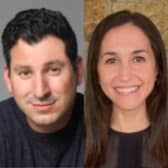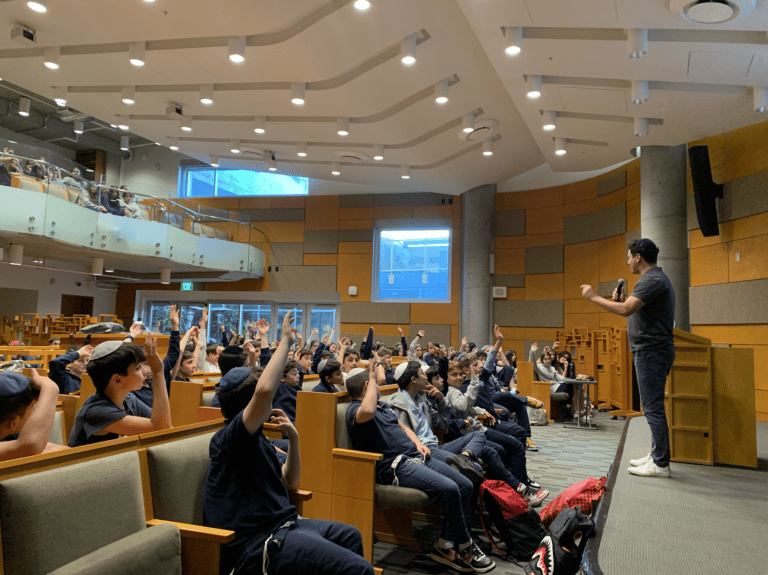
Our team — Noam Weissman, Yirmiyahu Danzig, Sara Himeles, and Shaked Karabelnicoff — just returned from Los Angeles where we spent 10 days touring schools and congregations across the religious spectrum with our latest film, “Unsafe Spaces: When being Jewish means you don’t belong.”
The schools we visited include Kadima Day School, de Toledo High School, YULA High School, Milken Community School, Gindi Maimonides Academy, Pressman Academy, Yavneh Hebrew Academy, and Wilshire Boulevard Temple Religious School.
We also ran a separate program for middle schools featuring these two videos on antisemitism and Zionism and our educational approach to how to think about these issues.
It was incredible meeting with students and educators in all of these different schools and communities. Now that we are back from the tour, we wanted to share more about our experience and three big ideas we are taking away from it.
Why we created “Unsafe Spaces”
The film “Unsafe Spaces” explores the challenges Jewish students are facing on college campuses related to identifying as Zionist and simply being Jewish.
In particular, it focuses on how Jewish students who are passionate about social and progressive issues often find that they need to renounce their Zionism in order to be accepted in those spaces.
At a time when antisemitism is rising and when Jewish students face increasing hostility on college campuses, we wanted to create this film to address the current reality and discuss it with students before they get to college.
The film articulates the problem of anti-Zionism and antisemitism through interviews with leading Jewish advocates and influencers like Yirmiyahu Danzig (who just joined our team a few weeks ago), Julia Jassey, Peter Fox, and Blake Flayton.
But, it can’t end there…Read on.
What was the purpose of the tour?
We went on this tour to discuss the current situation on some college campuses with students, some challenges in the broader cultural milieu, and most importantly, to talk about how we could all respond.
One of the main messages we emphasized in the discussion was about the power of education as a tool to fight back against antisemitism.
According to a recent American Jewish Committee poll, nearly half of Americans don’t know what the word “antisemitism” even means. In addition, a majority of people under 40 lack basic knowledge of the Holocaust.
At a time when antisemitism and anti-Zionism are coming from every corner, from icons like Kanye West, and from films like “Farha,” we believe that education is the best tool we have to combat anti-Jewish hate.
We shared how our goal in producing content and educational resources about Judaism and Israel is to help educate young Jews and their peers about Zionism, Israeli history, Jewish history, and the Jewish people.
With each video, podcast, article, or social media post we create, we hope that this content and curricula will help them build a thick Jewish identity, and give them the tools to stand up to antisemitism and educate others.
If more of us take a stand and speak out against antisemitism, and help educate others about Zionism, Israel, and the Jewish people, we will be able to fight back against anti-Jewish hate.
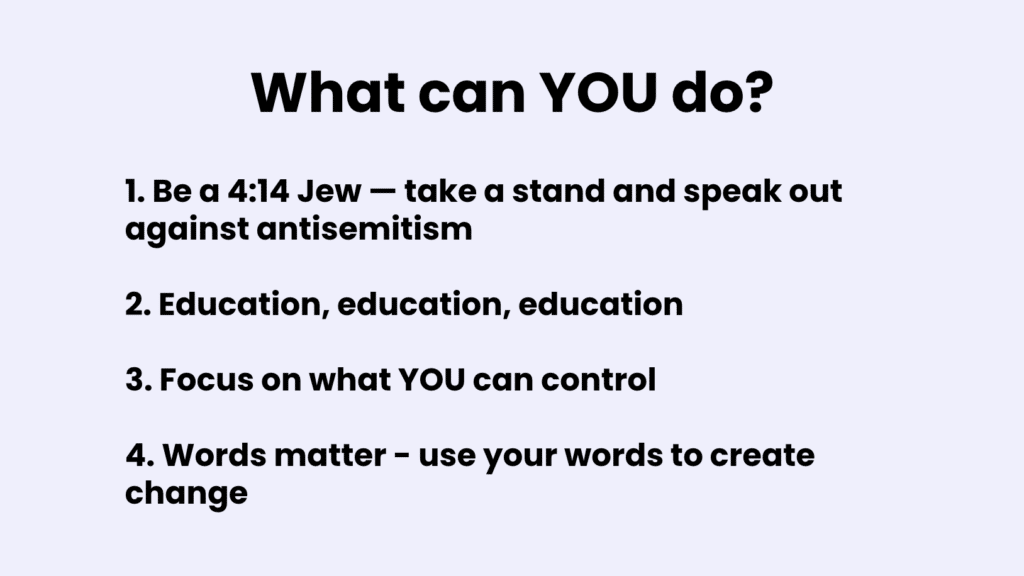
What were some highlights from the tour?
One particularly memorable moment from the tour was a conversation with a parent at Congregation Tikvat Jacob Beth Torah, a Conservative synagogue in Manhattan Beach.
In the discussion, she said that young people today often do not respond to anti-Zionism or antisemitism because they are afraid of being attacked and not having the answers. She asked us how we could solve this problem.
We felt sad and frustrated hearing her point about why young Jews would choose not to respond to antisemitism, and yet it also resonated as so true.
We said that this is precisely why we produce all of our content and distribute it on the social platforms where young people spend so much time.
When students are educated about antisemitism and confident in their Jewish identity, they will be less personally impacted by antisemitism and will be able to respond more effectively.
It was clear from this exchange and many others just how needed and important this education is. “This conversation and others like it demonstrate that there is a thirst for meaningful content on Jewish identity and how they look to Unpacked content to provide this,” our content creator Yirmiyahu Danzig said.
For Shaked Karabelnicoff, our head of TikTok, a general highlight was seeing how curious and smart the students were. “They were constantly asking questions and were showing so much excitement to learn about these issues,” she said.
“It was especially fun to see how excited the students were to learn about our efforts on TikTok. It speaks to how in the know our organization is. Instead of shying away from new platforms, we are constantly challenging the status quo and looking for new ways to meet our audience where they’re at,” she added.
Photos from the tour
Here are a few more photos to give you a better idea of the tour:
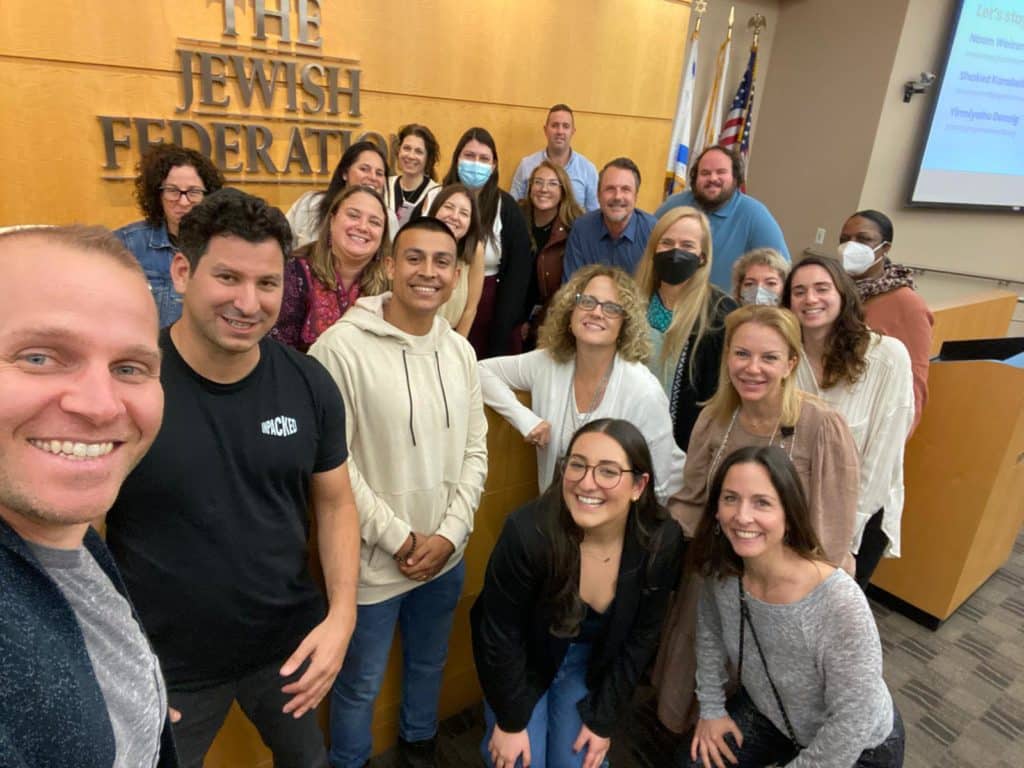
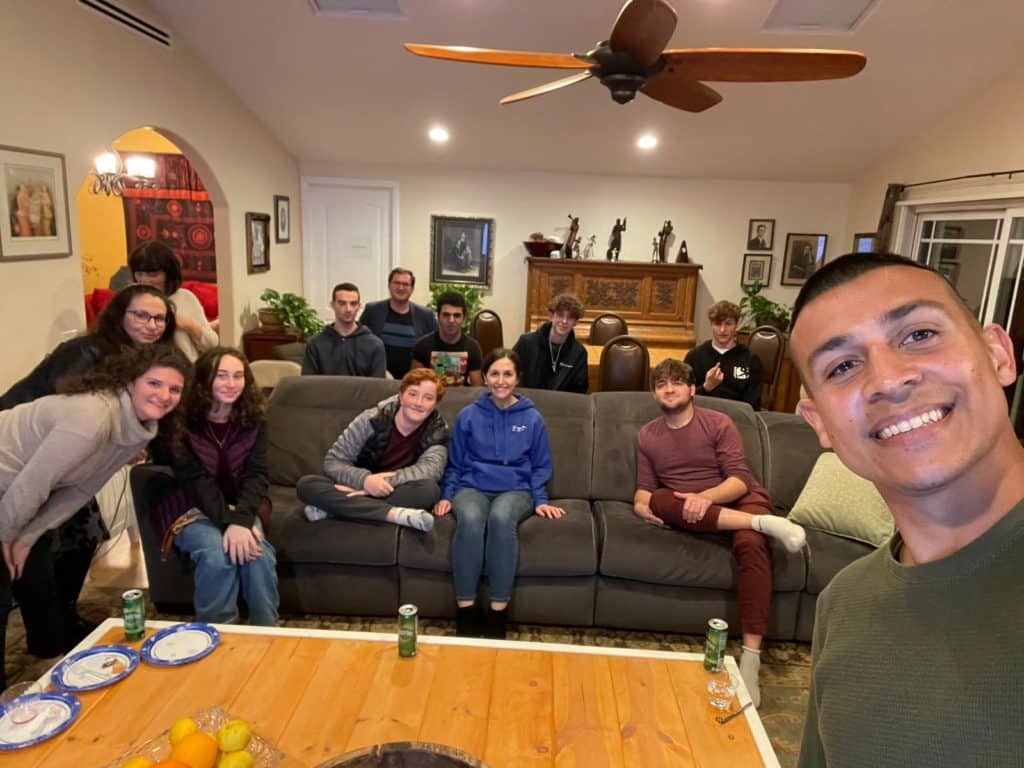
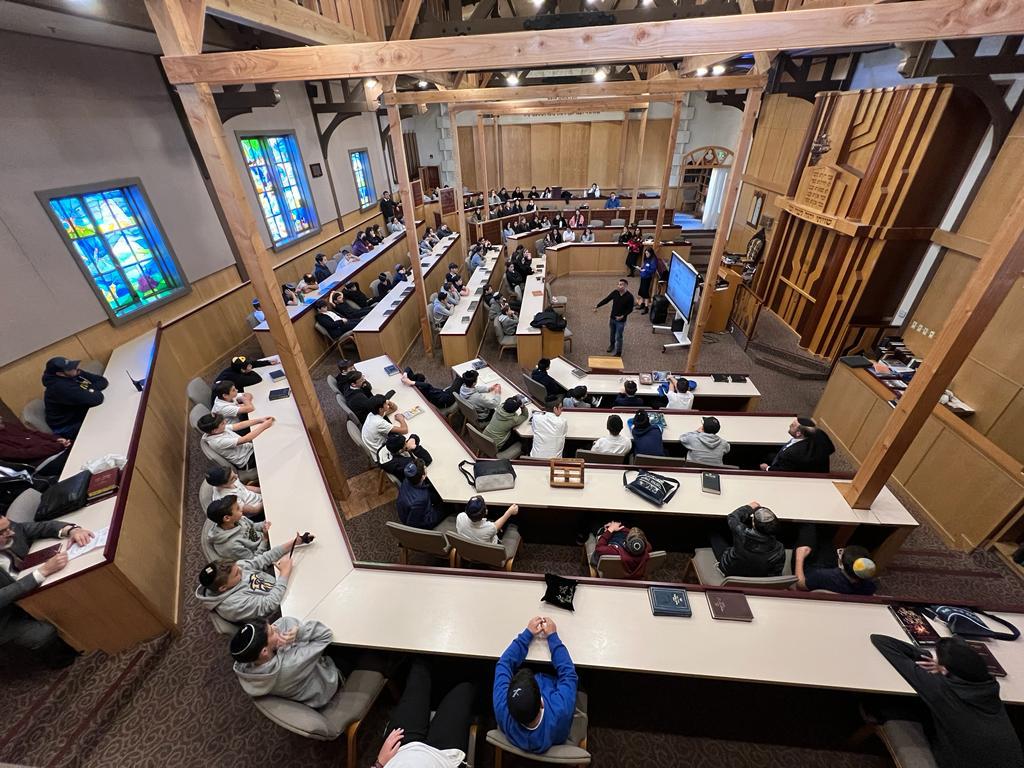
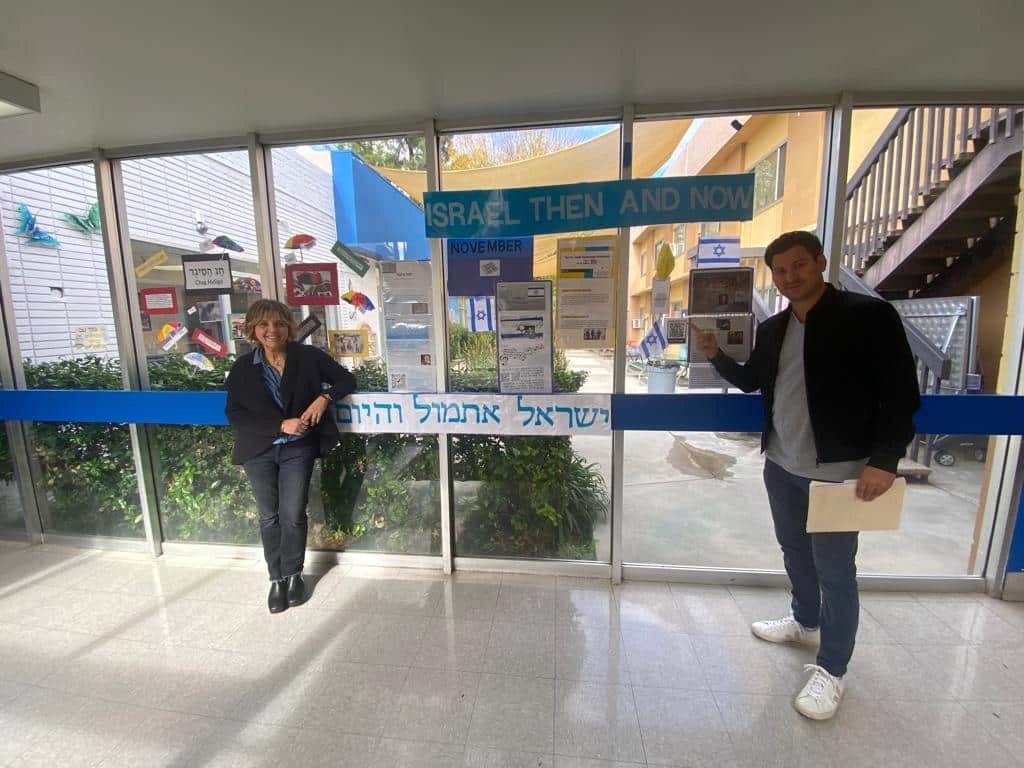
Three key takeaways
Since returning from the tour and after our conversations with students and educators in 15 schools and communities, we have all been reflecting on our key takeaways. Here are three big ideas we are taking away from this experience:
- Students demand credibility and want to see multiple sides of an issue. One of the most common questions that students asked us was: “Is Unpacked content biased? Is the information credible?” Students want to know that the teacher is not hiding anything from them and they want to see multiple sides of an issue. They seek a full understanding of each issue and are looking to hear and understand the “other” side. They do not want to feel like they have been cheated or misled. It is important that teachers present multiple perspectives so that students are aware of the full story and have the opportunity to discuss it.
- Themes > Subjects: Teaching about Jewish identity is a critical part of the educational experience. Themes such as antisemitism, Jewish peoplehood, and the Jewish connection to Israel are personally relevant and meaningful for students. Exploring these themes allows students to feel like they are part of Jewish history and community. While traditional subjects like Tanakh and Talmud are important, students are craving to learn Jewish ideas and ideals. Figuring out a way to incorporate Jewish ideas, peoplehood, and the history of the Jewish people and Israel as core parts of the educational experience is critical. At a time when antisemitism is on the rise and impacting our students’ identities, these elements become even more important. And, the students are passionate and curious. They are looking for causes to join.
- Our experience made us feel hopeful about the Jewish future. Given the combination of the motivated students we met, the dedicated educators and staff, and our curriculum and content, we think the Jewish people will be in a great place. The film “Unsafe Spaces” articulates the problem of anti-Zionism and antisemitism. But, it is just the problem. The solution is Jewish engagement and Jewish content. It is up to us as well as our allies to use these tools, take action and help create the future we want.
